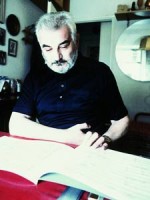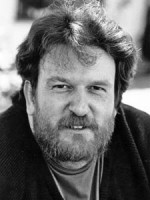Title
One of the greatest pleasures for a new-music ensemble is playing a piece newly composed for it. If all goes well, the piece will become a splendid addition to the repertory. When the composer can be present for the rehearsals, the performers learn the durable lesson of seeing how a written score relates to a composer’s vision. If the composer is young, there is also a rewarding feeling of encouraging a new generation and thus the future of music.
Body
Commissioning new music, however, can be risky. Even an experienced composer with an excellent reputation can miscalculate and produce a dud. Occasionally a piece seems really fine except for some oddly unplayable moments, although skilled composers often provide non-obvious but effective solutions to seemingly intractable problems. Sometimes the new piece turns out to be the opposite of what was expected. You asked for an energetic work and got something dreamy. You count on a 12-minute piece and get 45 minutes, and since it is too late to adjust the program, you have to find funding for overtime payments. Every now and then, one learns all too late that an odd instrument is needed but is not readily available.
The greatest danger is that the piece does not get finished in time. This has happened several times in the history of the New Juilliard Ensemble. In one case, the premiere of the opera The King’s Witch by Indonesian composer Tony Prabowo was deferred twice. The first postponement resulted from an incident typical of the Suharto dictatorship: Tony was sitting in front of the Jakarta Arts Center, talking with a choreographer, when soldiers stormed across the Arts Center ground and beat him up for no apparent reason. The second postponement resulted from the overthrow of the dictatorship. The librettist, the distinguished writer and journalist Goenawan Mohammad, had been able to allocate time for the project because the regime had shut down his popular news magazine. With the dictator gone, Goenawan was back in business but had next to no free time to complete his work on the opera. When The King’s Witch was finally heard two years later, it was worth the wait. But both postponements had been a headache because each time, I suddenly had to round up nearly half a concert’s worth of music.
The subject is not broached idly here. Two world premieres were planned for the New Juilliard Ensemble’s concluding concert of its 15th season, on April 3 in the Peter Jay Sharp Theater. One of them—Bruha, by Jude Vaclavik—will take place as scheduled. Jude was one of two composers to win the year’s audition for Juilliard composition students. Bruha looks like it will be fun to play and very rewarding to hear. On the other hand, early last month I learned that the Marimba Concerto commissioned from Robin de Raaff with funding from the Dutch Arts Council was nearly two months behind schedule, and would arrive far too late to arrange a soloist. As a result, it will be postponed until September—if the score arrives by mid-April. If not, the premiere will take place later in the 2009-10 season.
How does such a thing happen? The cause can be “composer’s block,” but not in this case. Like another European composer of my acquaintance, de Raaff is in the fortunate position of getting a lot of commissions. He can even live off his composing. However, freelance composers find it difficult to turn down a commission, and it’s easy to become over-extended. A single glitch in one’s schedule (such as the flu) can bring produce a cascade of missed deadlines. I know one composer who has proven himself so reliable that commissions pour in. He never delivers a piece late. But in order to do so, he has to avoid those compositional risks that sometimes produce magnificent surprises but also sometimes result in a dead end, compelling precious weeks to be spent in rewriting that wrecks the timetable. The solution? Play it safe; don’t take the risks, and produce music without an edge.
Sometimes composers save themselves these headaches by declaring in advance that fixed deadlines are not acceptable. When the Juilliard centennial was approaching, there was great interest in commissioning Arvo Part. Because he does not like to decide in advance what sort of piece he will write, we decided to tell him he could write anything he wanted, although some kind of concerto would make us especially happy. Armed with a gift of freedom of action and an appropriate commission fee, I called him nearly two years in advance of when we wanted the piece. He responded exactly as I feared. Although deeply grateful for the proposal, he declined the commission because, he said, he could not work under pressure, and the awareness that a celebratory commission cannot be late would make him too nervous.
With Robin de Raaff’s Marimba Concerto off the program for April 3, I had to find a substitute quickly. It suddenly occurred to me that the Icelander Snorri Sigfus Birgisson, who wrote an impressive vocal work for N.J.E. last season, had recently written a piano concerto for pianist Vikingur Olafsson (whose first name means Viking), who has already performed it three times in Europe and had expressed interest in performing it here. Knowing that Vikingur will graduate in May, I decided to seize the opportunity. Accordingly, Snorri’s Piano Concerto No. 2 will have its U.S. premiere on the coming concert.
That concert also has a sort-of-premiere, Ursula Mamlok’s Concertino, which was never publicly performed, although it was played once by students at the Manhattan School of Music, where she used to teach. The other two works on the program are the New York premiere of Cloches (Bells) by the late Italian master Franco Donatoni, and the superb Requiem—Songs for Sue, by the British composer Oliver Knussen, with Juilliard alumna Katherine Whyte as soloist.









